[am4show have='p8;p9;p11;p38;p72;p77;p92;' guest_error='Guest error message' user_error='User error message' ]
Week 14: Work, Energy, Power, Hydraulics/Pneumatics & Mechanical Challenges
Mechanical engineers spend their time converting energy into a useful form. Energy is the mover and shaker of the universe. Heat from the Sun, sounds from your radio, riding a bike and watching a movie are all expressions of different forms of energy. Energy can be stored in many different forms; kinetic (moving), potential ("could"), thermal (heat), chemical (in molecular bonds), electrical, electrochemical, electromagnetic, sound and nuclear. Energy and force are related, but they are not the same thing. Energy is the work done by a force. Power is the rate at which work is done. Ready?
- 1/06: Week 14 Energy (Work, Energy, Power) Units 4 & 5 (Download Worksheet #14)
Note the video above is from the previous year (2024). We had trouble with the recording from the live class on Jan 6th, so until we fix it, please use this video which matches the worksheet #14 for 2025.
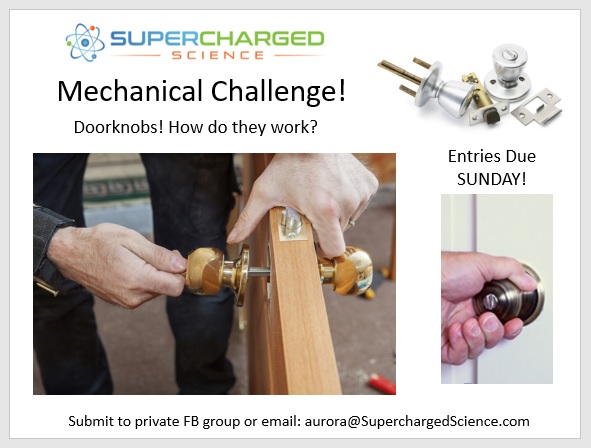
Week 15: Renewable Energy (Solar, Wind, Geothermal, Biomass, Tidal Power, Ocean Energy) & Roaster Racer Challenge
Scientists are now working on substitutes for traditional methods of generating power. For example, they have already figured out ways to use alcohol instead of fossil fuels, coal instead of wood, and petroleum instead of whale oil. And every day we’re getting better and better!
Today, we’re going to look at how to get energy from the sun, wind, ocean tides, trash, and more. We'll discover new and innovative ways of finding energy, like when a car drives down the road and the tires squish the pavement, if it's on the right kind of road, that "squish" can turn into electricity to power the streetlights! We’ll take a look at how to get at the energy locked in chemical bonds and figure out how run a car on just sunlight and water. And how a teenage girl won a prize for figuring out how to make jet fuel from algae.
- 1/13: Week 15 Renewable Energy (Solar, Wind, Water...) Unit 12 (Download Worksheet #15)
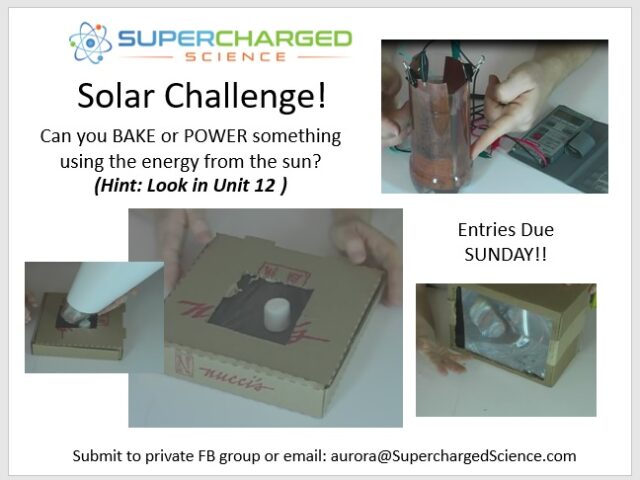
Week 16: Thermodynamics: Heat, Temperature, Phase Shifts & Steamboats
If you ever wanted to make it rain indoors, boil room temperature water, figure out the triple point of water, and get your kids to take a bath on command, then this is the right place for you! If you put an ice cube in a glass of lemonade, the ice cube melts. The thermal energy from your lemonade moves to the ice cube. Heat moves from hot to cold, and in our labs, we're going to discover how to use this when we build steamboats, heat engines, and more!
- 1/20: Week 16 Thermodynamics (Heat & Temperature) Unit 13 (Download Worksheet #16)
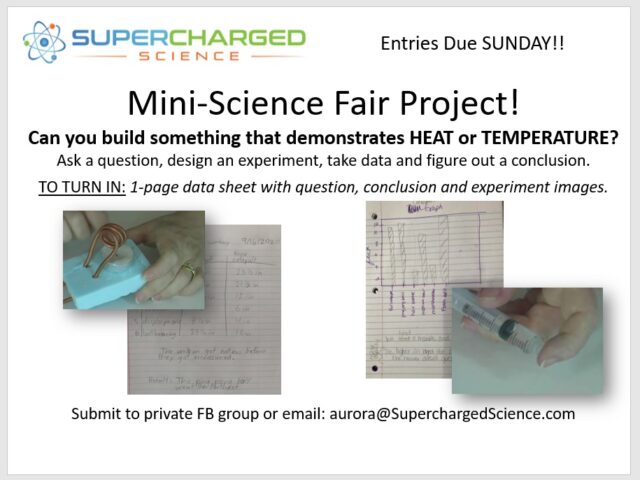
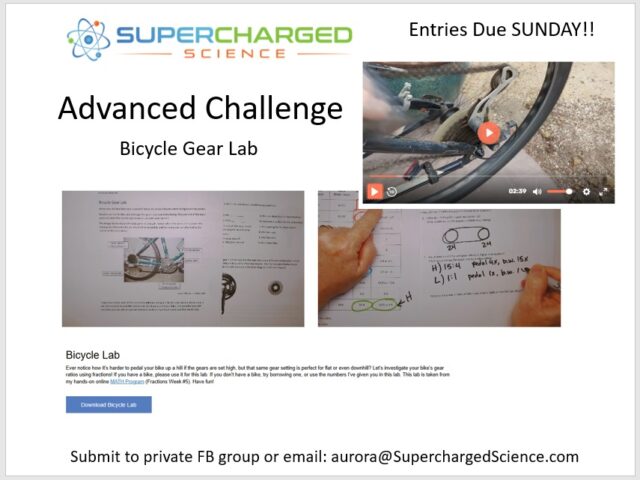
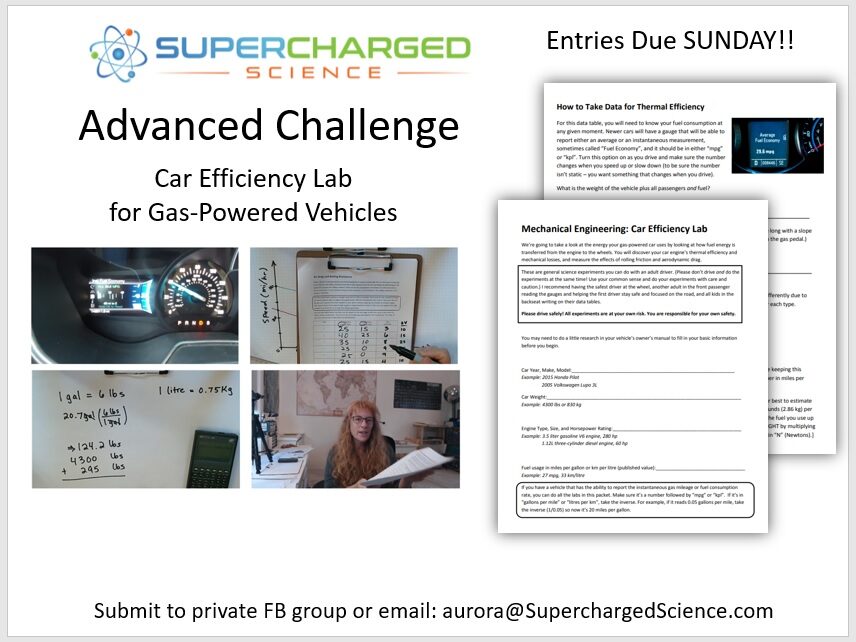
Week 17 Electronics: Soldering with Brian
This week, we’re doing a SPECIAL BONUS set of experiments that will highlight the fundamental basics of electronics (without getting lost in programming). You’ll get to make your own electrical circuits on a real circuit board with Brian! (Soldering Basics with Brian uses this soldering kit.)
BONUS Car Efficiency Lab
We’re going to take a look at the energy your gas-powered car uses by looking at how fuel energy is transferred from the engine to the wheels. You will discover your car engine’s thermal efficiency and mechanical losses, and measure the effects of rolling friction and aerodynamic drag
Bicycle Lab
Ever notice how it's harder to pedal your bike up a hill if the gears are set high, but that same gear setting is perfect for flat or even downhill? Let's investigate your bike's gear ratios using fractions! If you have a bike, please use it for this lab. If you don't have a bike, try borrowing one, or use the numbers I've given you in this lab. This lab is taken from my hands-on online MATH Program (Fractions Week #5). Have fun!
[/am4show]
